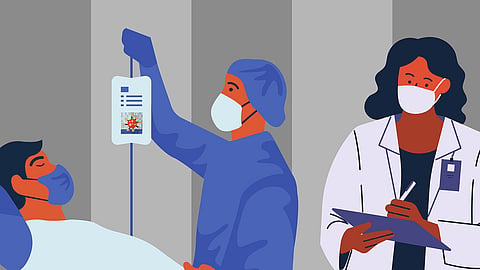Surge in Guillain-Barré Syndrome (GBS) Cases in Pune:
The number of reported Guillain-Barré Syndrome (GBS) cases in Pune has now surpassed 100, prompting the State Health Minister, Prakash Abitkar, to visit the city and investigate the cause behind this unusual outbreak. Abitkar visited several affected areas, including Dhayari, Sinhgad Road, Kirkatwadi, and Nanded Gaon, and met with both residents and patients hospitalized in local government and private facilities.
What is Guillain-Barré Syndrome (GBS)?
GBS is a rare neurological disorder where the immune system attacks the nerves, potentially causing symptoms like weakness, numbness, or even paralysis. As of January 27, 2025, the state health department reported 110 suspected cases, with one death and eight confirmed cases of GBS. Among the affected, 73 patients are male and 37 are female, with 13 patients currently on ventilators.
Government’s Response and Measures:
Minister Abitkar acknowledged that while GBS is not new, the recent surge is unusual, with nearly 80% of the cases emerging from a specific region. In response, the government has ensured that hospitals are well-stocked with IVIG injections, which are vital for GBS treatment. Furthermore, a nodal officer has been appointed to manage the supply chain of essential medications.
Abitkar outlined several proactive steps, including meetings between district health officials, Pune Municipal Corporation (PMC), and private hospitals to ensure proper reporting of GBS cases. Over 65,000 households in affected areas have been surveyed to investigate the prevalence of gastrointestinal issues. In addition, the Food and Drug Administration (FDA) has collected water samples from various sources, including a community well in Nanded Gaon, where multiple homes receive water.
The health minister has ordered the cleaning of the community well and water tanks and emphasized the need for proper drainage systems. He pointed out that some recently merged areas in Pune lack adequate water treatment facilities, which might be contributing to the outbreak.


